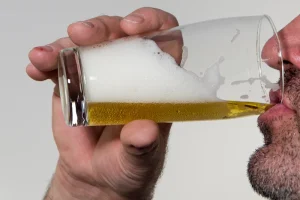Delirium Tremens: What It Is, Causes, Symptoms & Treatment

Outpatient treatment may be available for mild-to-moderate symptoms of alcohol withdrawal; however, should symptoms become severe, inpatient care may be required. Alcohol withdrawal syndrome can range in severity from mild to fatal, making it crucial for patients to present to care for evaluation of their symptoms. Patients who have alcohol withdrawal had prior complicated withdrawals should not attempt to decrease their alcohol intake without consultation with their healthcare team. If a patient begins experiencing signs and symptoms of severe withdrawal, including but not limited to seizure, altered mental status, or agitation, they should seek emergency care immediately.
When To Seek Help for Alcohol Addiction
Other medications might include anticonvulsants, anti-nausea drugs and sleep aids, depending on individual symptoms and medical history. It’s crucial to consult a healthcare professional for a tailored treatment plan. Moderately severe AWS causes moderate anxiety, sweating, insomnia, and mild tremor. Those with severe AWS experience severe anxiety and moderate to severe tremor, but they do not have confusion, hallucinations, or seizures.

How is delirium tremens treated, and is there a cure?
The main underlying issue that causes DTs is alcohol use disorder. The long-term goal after treating DTs is to treat alcohol use disorder. Receiving treatment for it can help reduce the odds of developing DTs in the future. Other tests may be possible, depending on your symptoms or if you have any other health problems.
- The best way to prevent AWS is to avoid regular heavy drinking.
- Family history, mental health conditions and many other factors can play a role.
- At times, it’s easy to forget why you entered recovery in the first place.
- Not surprisingly, most symptoms of withdrawal are symptoms that occur when the brain is overstimulated.
- If you consistently consume significant amounts of alcohol, your CNS gets used to this effect.
Alcohol use disorder

The continued use of alcohol causes changes in the central nervous system and neurotransmitter production in the brain. When the supply of alcohol is suddenly stopped or decreased, withdrawal symptoms can develop. A doctor or other treatment professional may evaluate for the above factors prior to making a recommendation for the level of detox care and detox timeline needed to keep a person safe and comfortable. Symptoms of alcohol withdrawal are caused by stopping or strongly reducing alcohol consumption in a person living with a chronic alcohol use disorder.
- Alcohol withdrawal is a natural physical response your body goes through when trying to break an alcohol dependence.
- Although there are many benzos available, diazepam (Valium), lorazepam (Ativan), and chlordiazepoxide (Librium) are the most frequently used.
- Delirium tremens is dangerous, killing as many as 1 out of every 20 people who develop its symptoms.
- When you drink, the alcohol suppresses certain neurotransmitters in your brain.
- It pulls you out of a reactive state of mind and into a proactive state, which can be a powerful tool in helping treat alcohol withdrawal.
- But this is a goal you should also approach safely, and you don’t have to do it alone.
- This article discusses alcohol withdrawal, its symptoms, and potential complications.
- DTs can develop in anyone who meets the criteria for heavy alcohol use.
- If you are concerned about your drinking, speak with your doctor.
Minor alcohol withdrawal symptoms typically set in about 6 hours after your last drink and may last 4 to 48 hours. While it’s true that up to 50% of people with AUD experience withdrawal symptoms, only a small portion require medical treatment. For most people, alcohol withdrawal symptoms will begin sometime in the first eight hours after their final drink. A rare but very serious syndrome called delirium tremens can occur during alcohol withdrawal. Also known as DTs, an estimated 2% of people with alcohol use disorder and less than 1% of the general population experience them. Alcohol withdrawal is common, but delirium tremens only occurs in 5% of people who have alcohol withdrawal.

Not surprisingly, most symptoms of withdrawal are symptoms that occur when the brain is overstimulated. Your healthcare provider will recommend and encourage treatment https://ecosoberhouse.com/ for alcohol use disorder. For mild alcohol withdrawal that’s not at risk of worsening, your provider may prescribe carbamazepine or gabapentin to help with symptoms.


Hinterlasse einen Kommentar
An der Diskussion beteiligen?Hinterlasse uns deinen Kommentar!